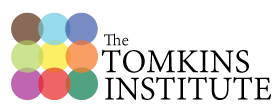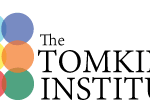Script theory: Differential magnification of affects
SS Tomkins – Nebraska symposium on motivation, 1978 – psycnet.apa.org
Abstract: The script theory originally presented by the author at the Fourteenth International Congress of Psychology (Montreal, Canada; 1954) is modified in 4 ways: (1) the theory of affect as amplification is now specified as analogic amplification; (2) he presently believes that the skin of the face, rather than its musculature, is the major mechanism of analogic amplification; (3) a substantial quantity of the affect that individuals experience as adults is pseudo, backed-up affect; and (4) affect amplifies not only its own activator, but also the response to both that activator and to itself. According to script theory, the scene—an event with a perceived beginning and end—is the basic unit of analysis; the connected set of scenes lived in sequence is called the “plot” of life. However, the script does not deal with all the scenes or the plot, but rather with the individual’s rules for predicting, interpreting, responding to, and controlling a magnified set of scenes. (24 ref) (PsycINFO Database Record (c) 2012 APA, all rights reserved) Cited by 618
Scripting the macho man: Hypermasculine socialization and enculturation
DL Mosher, SS Tomkins – Journal of Sex Research, 1988 – Taylor & Francis
Tomkins’ (1979) script theory offers a coherent, heuristic, and elegant account of the macho personality constellation (Mosher & Sirkin, 1984), consisting of: (a) callous sexual attitudes, (b) violence as manly, and (c) danger as exciting. A script is a set of rules for interpreting, directing, defending, and creating the scenes making up the life of the macho man. The macho script organizes childhood scenes in which so‐called “superior, masculine” affects—like excitement and anger—were socialized to be favored over so‐called “inferior, feminine” affects—like distress and fear. Furthermore, both adolescent rites of passage in male youth social networks and processes of enculturation in the American culture and its mass media continue that hypermasculine socialization. The ideological script of machismo descends from the ideology of the warrior and the stratifications following warfare—victor and vanquished, master and slave, the head of the house and woman as his complement, the patriarch and his children. The personality script of the macho man and his ideology of machismo mutually amplify one another —simultaneously justifying his lifestyle and celebrating his world view. In his dangerous, adversarial world of scarce resources, his violent, sexually callous, and dangerous physical acts express his “manly” essence. Cited by 186


